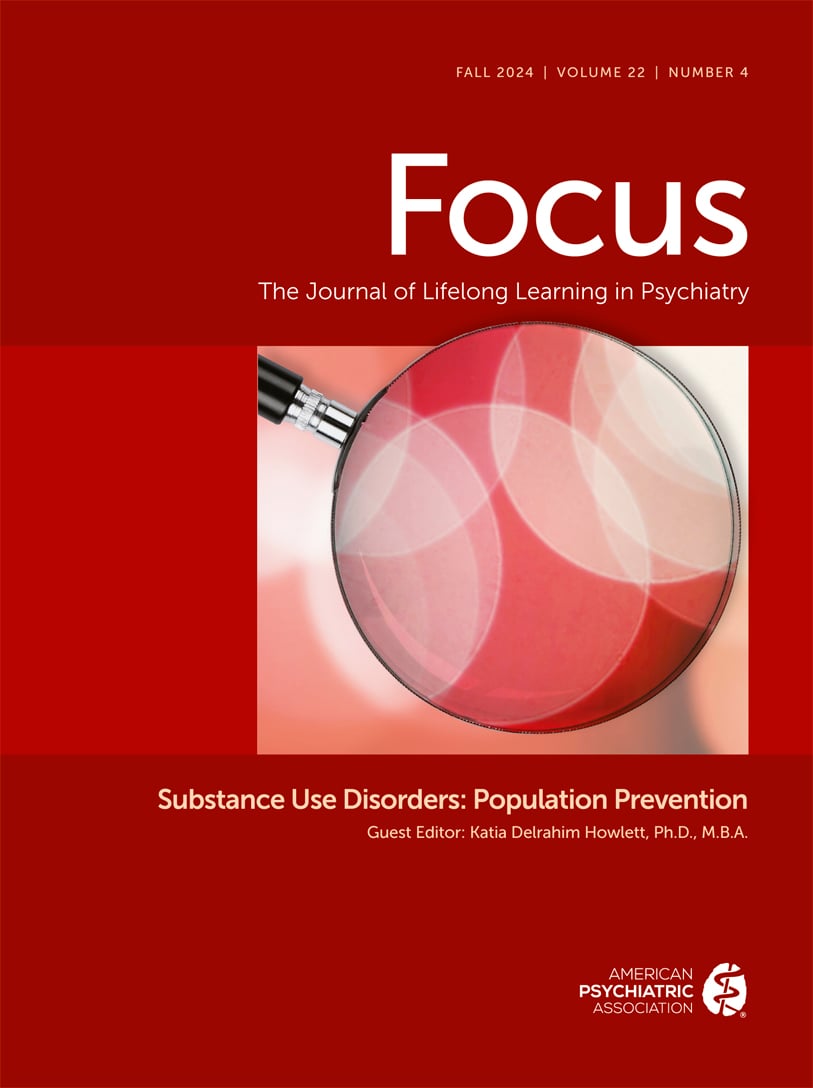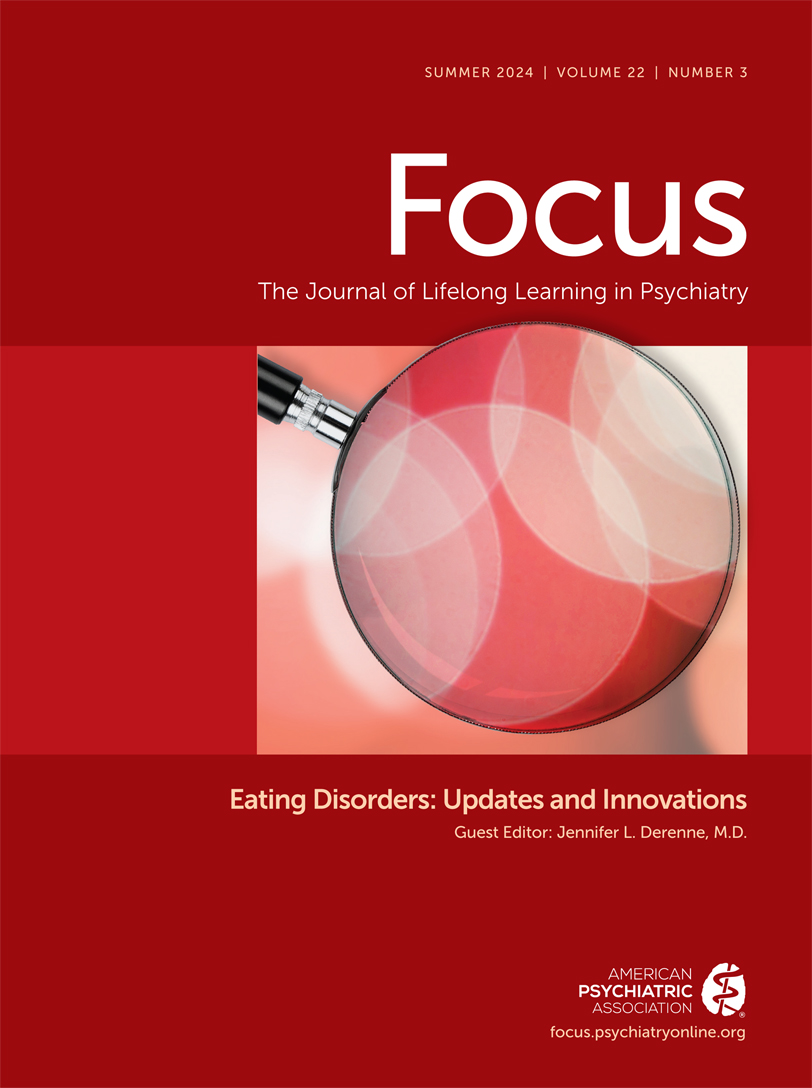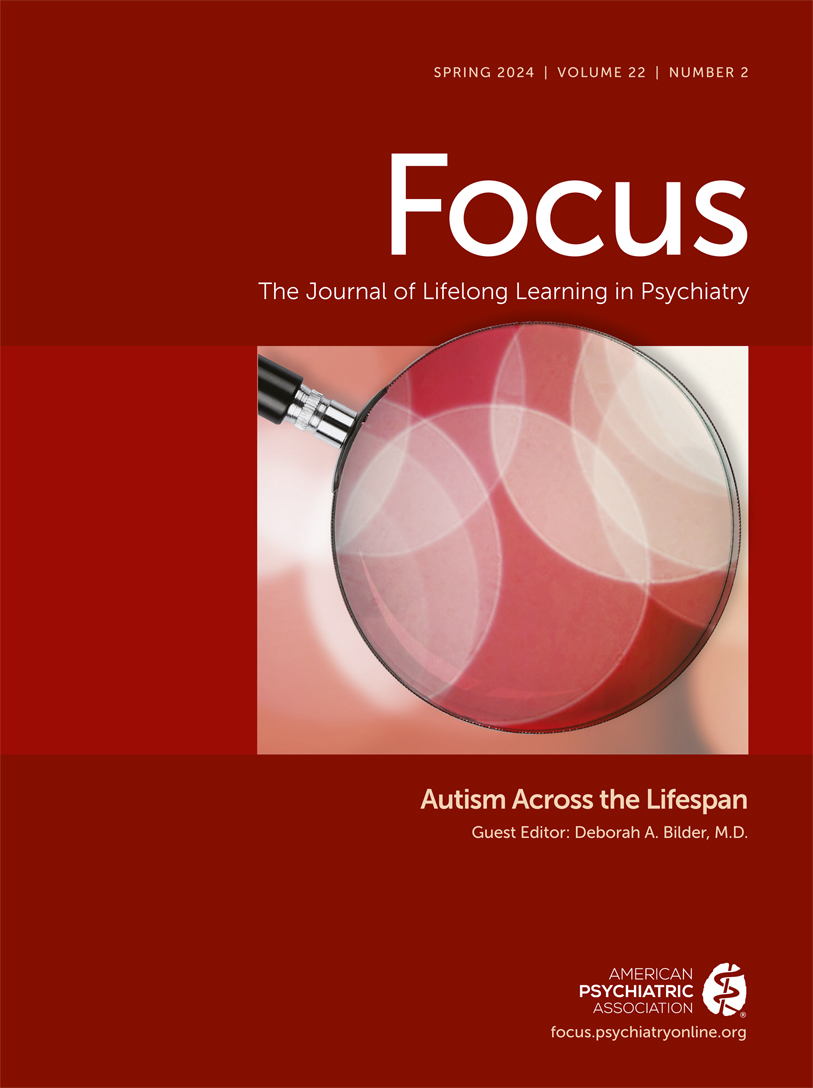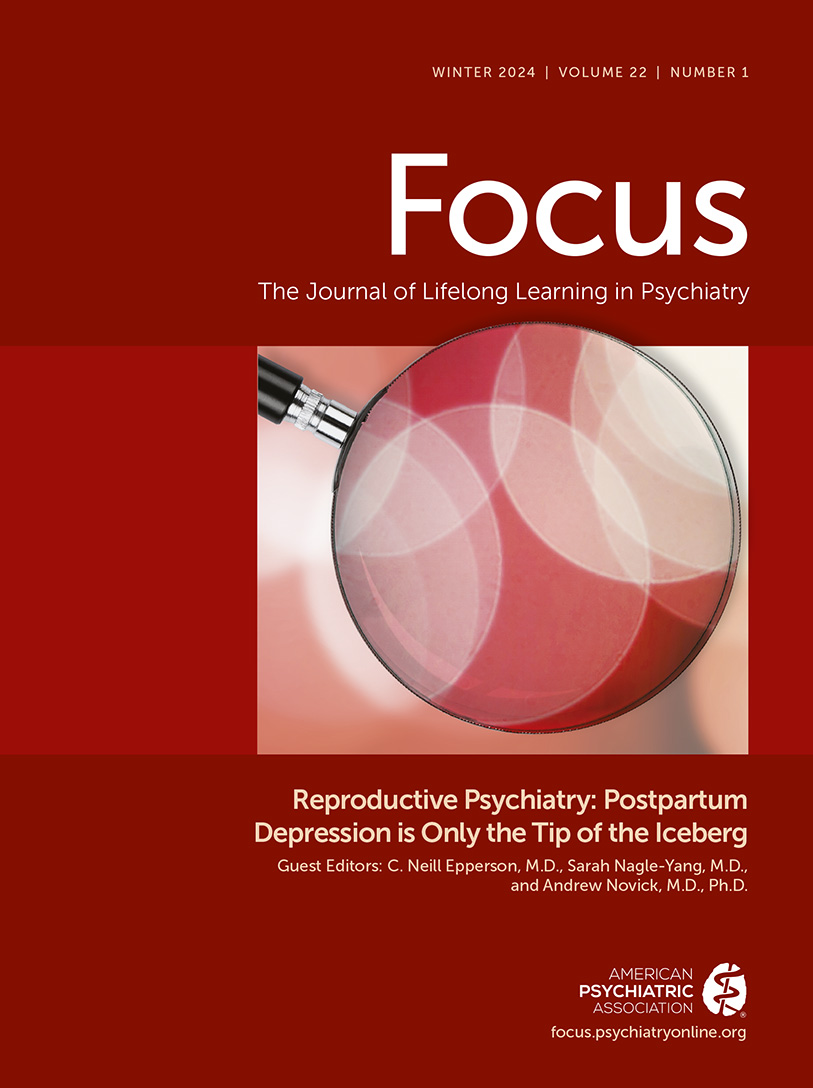Focus
- Volume 6
- Number 1
- January 2008
LETTER FROM THE EDITORS
CLINICAL SYNTHESIS
Publication date: 01 January 2008
Pages15–21This article discusses research-informed strategies for predicting and treating suicidal behavior. One of the most important approaches is to provide training to health professionals in recognizing and treating depression aggressively. An awareness of ...
https://doi.org/10.1176/foc.6.1.foc15Publication date: 01 January 2008
Pages22–35To facilitate continued clinical competence, the American Board of Medical Specialties and the American Board of Psychiatry and Neurology are implementing multi-faceted Maintenance of Certification programs, which include requirements for self-assessments ...
https://doi.org/10.1176/foc.6.1.foc22Publication date: 01 January 2008
Pages36–45Major depression is a devastating disorder that represents a major public health concern. Of special relevance is the high percentage of patients whose depression does not respond to or who are unable to tolerate conventional antidepressant medications, ...
https://doi.org/10.1176/foc.6.1.foc36PATIENT MANAGEMENT
INFLUENTIAL PUBLICATIONS
Publication date: 01 January 2008
Pages58–62This section contains a compilation of recent publications that have shaped the thinking in the field as well as classic works that remain important to the subject reviewed in this issue. This bibliography has been compiled by experts in the field and ...
https://doi.org/10.1176/foc.6.1.foc58Publication date: 01 January 2008
Pages69–79Objectives: Suicidal ideation is an uncommon symptom than can emerge during antidepressant treatment. The biological basis of treatment-emergent suicidal ideation is unknown. Genetic markers may shed light on the causes of treatment-emergent suicidal ...
https://doi.org/10.1176/foc.6.1.foc69Publication date: 01 January 2008
Pages80–85Objectives: This study compared the time patterns of suicide attempts among outpatients starting depression treatment with medication or psychotherapy. Method: Outpatient claims from a prepaid health plan were used to identify new episodes of depression ...
https://doi.org/10.1176/foc.6.1.foc80Publication date: 01 January 2008
Pages86–103Objectives: To systematically review studies of treatment efficacy for suicidality in mood disorders. To consider the evidence for whether antidepressants may induce suicidality. Method: Systematic review of the literature. Results and Conclusions: There ...
https://doi.org/10.1176/foc.6.1.foc86Publication date: 01 January 2008
Pages104–119Objectives: The authors compared the effectiveness of cognitive therapy and pharmacotherapy as second-step strategies for outpatients with major depressive disorder who had received inadequate benefit from an initial trial of citalopram. Cognitive therapy ...
https://doi.org/10.1176/foc.6.1.foc104Publication date: 01 January 2008
Pages120–127Objectives: The authors sought to determine whether a greater frequency of interpersonal psychotherapy (IPT) sessions during maintenance treatment has a greater prophylactic effect than a previously validated once-a-month treatment. Method: A total of 233 ...
https://doi.org/10.1176/foc.6.1.foc120Publication date: 01 January 2008
Pages128–142Objective: This report describes the participants and compares the acute and longer-term treatment outcomes associated with each of four successive steps in the Sequenced Treatment Alternatives to Relieve Depression (STAR*D) trial. Method: A broadly ...
https://doi.org/10.1176/foc.6.1.foc128Publication date: 01 January 2008
Pages143–154Treatment-resistant depression is a severely disabling disorder with no proven treatment options once multiple medications, psychotherapy, and electroconvulsive therapy have failed. Based on our preliminary observation that the subgenual cingulate region (...
https://doi.org/10.1176/foc.6.1.foc143Publication date: 01 January 2008
Pages155–162This study analyzed the efficacy of electroconvulsive therapy (ECT) in depression by means a meta-analytic review of randomized controlled trials that compared ECT with simulated ECT or placebo or antidepressant drugs and by a complementary meta-analytic ...
https://doi.org/10.1176/foc.6.1.foc155Past Issues
View Issues Archive
Vol. 22 | No. 4

Vol. 22 | No. 3

Vol. 22 | No. 2
